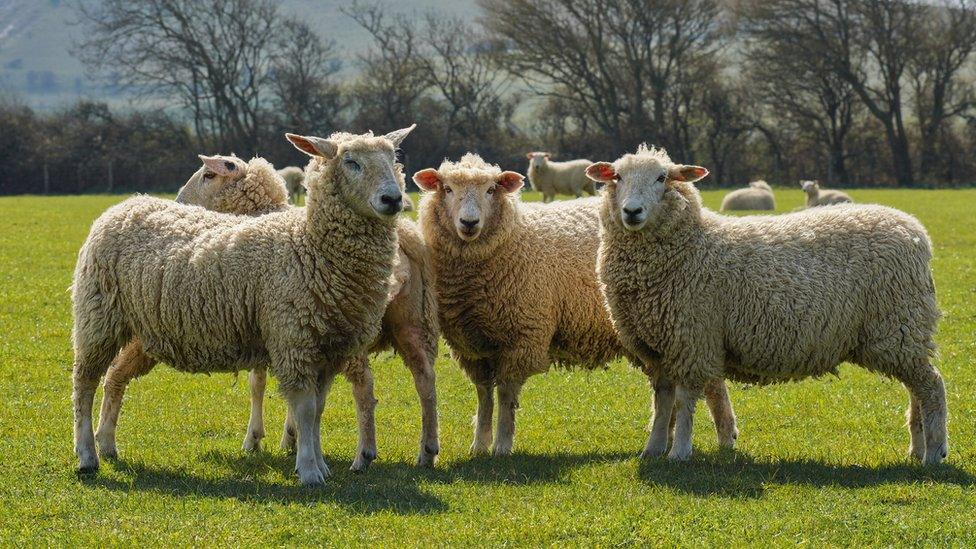Dog attacks: Forest of Dean farmer loses £7k in 10 years
- Published
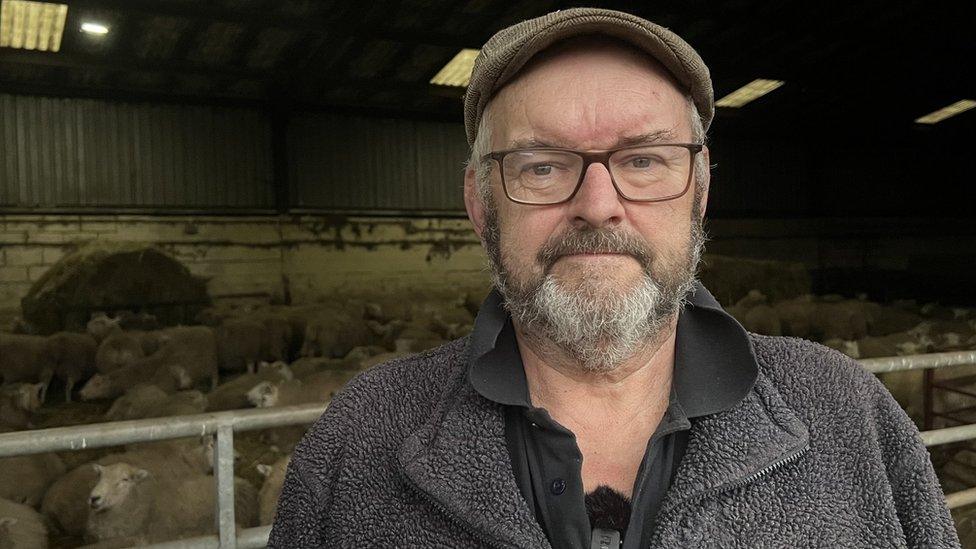
Dave Williams was "absolutely gutted" following a recent attack on his flock
A farmer estimates he has lost £7,000 in 10 years following dog attacks on his flock of sheep.
Longhope farmer Dave Williams said he has lost about 50 sheep in the last decade, adding "there's nothing worse than seeing animals suffer".
Mr Williams said that the attacks cost farmers "an absolute fortune" in vets bills as well as lost income.
Gloucestershire Police is taking part in a campaign to encourage the public to keep dogs on a lead near livestock.
Operation Recall will run for a week starting on 27 March but the force is keen for dog owners to learn lessons for life.
'Cruel'
Mr Williams, who is supporting the campaign, has worked on his farm for most of his life and said problems with dogs chasing and killing his sheep have got worse.
In a recent video, two dogs were seen attacking some of his flock, causing serious injuries. The dogs were later removed from their owner.
"I was livid, absolutely tamping," Mr Williams said.
"It was cruel, it was terrible; you don't want to see it. I was absolutely gutted."
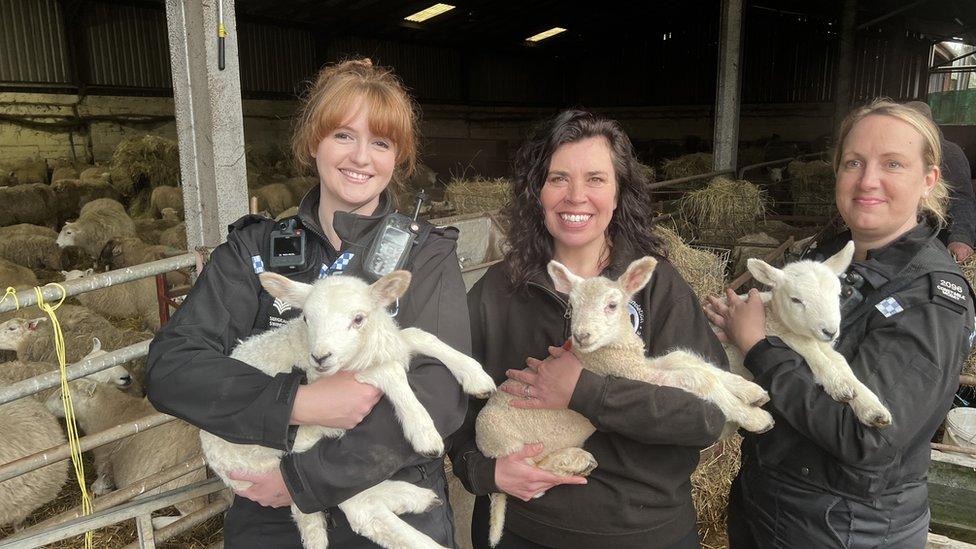
Operation Recall will run for a week, but it is hoped to promote long-lasting awareness
He added that is not only the sheep that are effected by the attacks.
"I've probably lost about 50 sheep and in monetary terms, about £7,000, in stress - about £5million.
"You've got your vet bill, you've got to get rid of that sheep - which is a colossal amount of money," he said.
Operation Recall is a national campaign, initially created by Cheshire Police, the RSPCA and the Naturewatch Foundation.
National figures released by NFU Mutual show that farm animals worth an estimated £2.4m were severely injured or killed by dogs in 2023, which is an increase of 30% from 2022.
The South West was the worst-hit region by cost, with dog attacks on livestock costing an estimated £359,000.
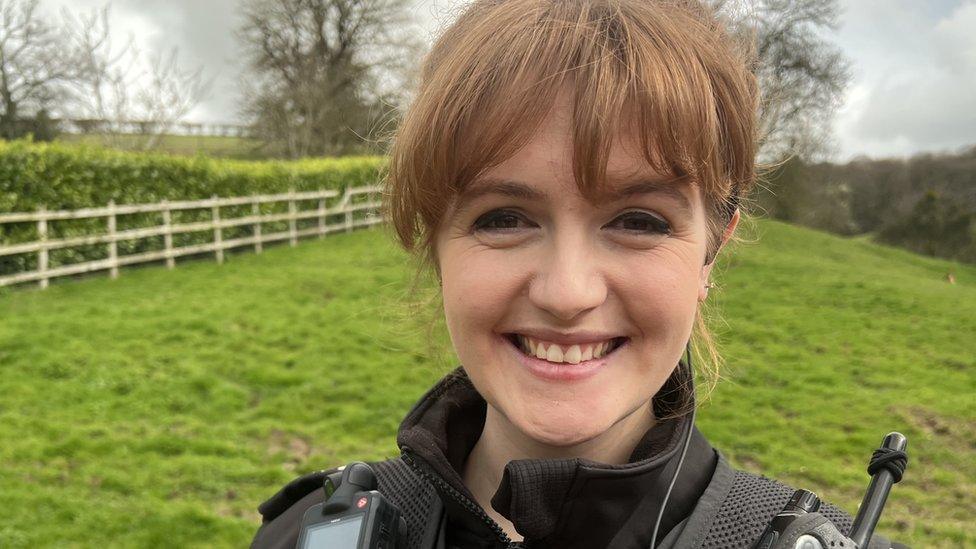
Sgt Sam Swinford said the police will "support farmers" by pursuing those who allow their dogs to worry livestock
Sgt Sam Swinford, from Gloucestershire Police's rural crime team, said the attacks can easily be prevented.
"If you doubt your dog's recall for a second, keep it on a lead," she said.
"The owners must know because the dogs are going back covered in blood.
"That can all be prevented simply by putting your dog on a lead and insuring that it is appropriately trained."

Follow BBC Gloucestershire on Facebook, external, X, external and Instagram, external. Send your story ideas to us on email, external or via WhatsApp on 0800 313 4630, external.
- Published15 February 2024
- Published8 February 2024
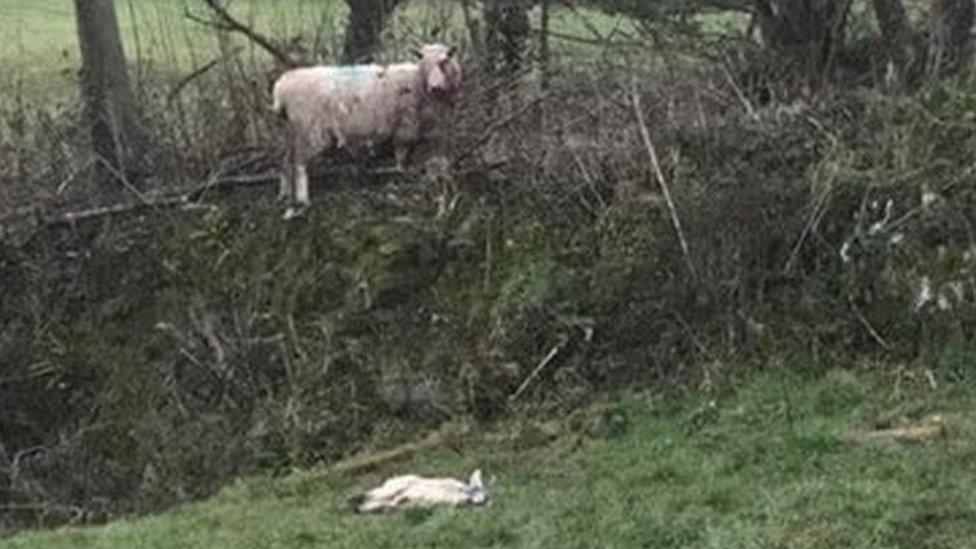
- Published2 February 2024
